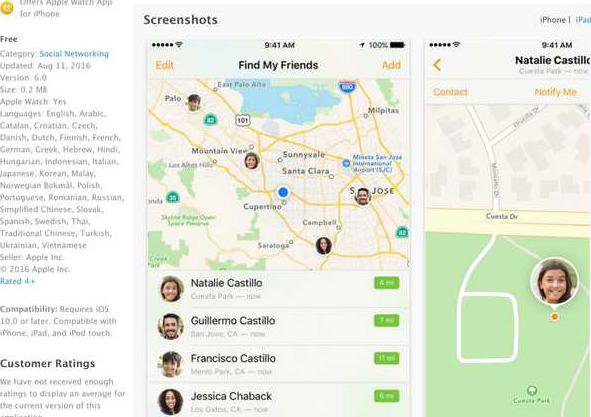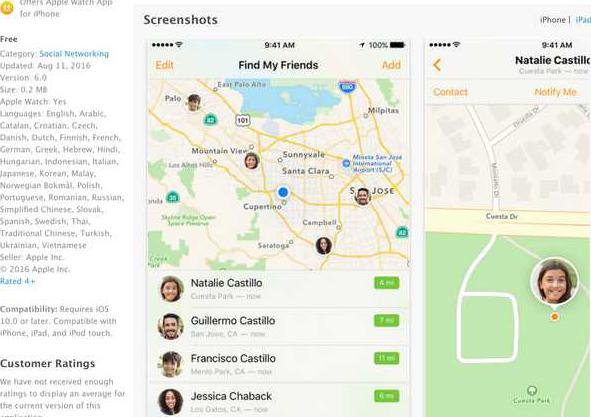With all the fabulous technology in the world, theres no reason to dread the busy school year. Android and iOS offer options to organize families lives, music and safety.
I stopped at my neighbors house last week for an impromptu soccer game and we decided to go over our car pool for the week. I grabbed my phone and she pulled out her physical, paper calendar. Even though we were using different methods to track our families schedules, the thought was the same. We had assigned each child a specific color on the calendar to help keep the jam-packed week a bit organized. She just had to use markers.
This smart lady told me of her attempts to set up family sharing on their collective iPhones, but that she never finished the job. I told her it was time.
So, if you are out there still using a Thomas Kinkade calendar to mark down events, its time to go mobile. No more telling someone, Ill have to check my calendar when I get home. Youll always have your entire familys schedule with you no matter where you are. The calendars on Google and iOS are just one positive to talk about when it comes to mobile sharing options.
Two years after Apple launched Family Share, a program to allow family members to share apps, videos, photos, calendars and music, Google has finally jumped on board. Googles Family Library just launched and has many features similar to Family Sharing that will make your hectic life a gazillion times easier. There are so many benefits to using these programs, but here are my top four:
Sharing schedules: Maybe youve been using Google Calendar for 10 years, but many parents have still not converted to a shared online calendar. What are they waiting for? With kids going all different directions these days, its the easiest way to keep everyone organized. Users can assign different colors for people or activities and choose who has access to each calendar. Organizers can invite people to events and set reminders. When someone sets up a Family Sharing group, iOS gets the process rolling by automatically creating a family group on the calendar.
Sharing content: Family Library for the Google Play store allows a family manager and up to five other users to share purchased content. If one person buys a movie, TV show, book, app or game, he or she can share it for free with other group members. Since this is a new option for Google, there's a hitch. Developers must agree that their app will be sharable. It isnt required. So users may find that not all content is available to share. Check content for the little house icon with the heart inside to be sure. Family Sharing works much the same way. There can be up to six people in a group, with an organizer who sets up payment and agrees to pay for iTunes, iBooks and App Store purchases. In both Google and iOS, the organizer can require approval before anyone else buys something. One way iOS is a bit better in this regard is that any songs users buy are also sharable. With Google, users need a $14.99 per month Google Play Music Family Plan. Apple does, of course, have Apple Music memberships to buy as well.
Controlling content: Family Library restricts members to ages 13-17, while Family Sharing allows all ages to join. But both give you the option of requiring permission before group members can buy anything. This is a great way to make sure people in the group dont rack up a ton of charges. An even better benefit is that a parent must give the OK before a child downloads any app, song or movie. The organizer gets the request and can research it before giving the go ahead. Its a great way to keep tabs on exactly what makes its way onto kids phones.
Sharing locations: Family Sharing can help parents track where their children are by using Find My Friends. The location of anyone who is part of your Family Sharing plan on iOS will pop up on this app. Just make sure location sharing is turned on. Those who favor Android can download similar apps to track family members locations. Its not all about spying, either. Using this app can save tedious phone calls like, Have you left yet? or Are you still at Jakes house? With these apps, you just know.
Bonus features: Family Library will recognize any parental control settings parents have on kids devices. So it wont automatically share anything Mom or Dad may have purchased, but dont necessarily want their children to own think Bridesmaids or The Breakfast Club. Family Library allows users to watch any purchased movies or TV shows on any device that works with the Google Play Movies and TV app. So a smart TV or Roku will have access as well.
I stopped at my neighbors house last week for an impromptu soccer game and we decided to go over our car pool for the week. I grabbed my phone and she pulled out her physical, paper calendar. Even though we were using different methods to track our families schedules, the thought was the same. We had assigned each child a specific color on the calendar to help keep the jam-packed week a bit organized. She just had to use markers.
This smart lady told me of her attempts to set up family sharing on their collective iPhones, but that she never finished the job. I told her it was time.
So, if you are out there still using a Thomas Kinkade calendar to mark down events, its time to go mobile. No more telling someone, Ill have to check my calendar when I get home. Youll always have your entire familys schedule with you no matter where you are. The calendars on Google and iOS are just one positive to talk about when it comes to mobile sharing options.
Two years after Apple launched Family Share, a program to allow family members to share apps, videos, photos, calendars and music, Google has finally jumped on board. Googles Family Library just launched and has many features similar to Family Sharing that will make your hectic life a gazillion times easier. There are so many benefits to using these programs, but here are my top four:
Sharing schedules: Maybe youve been using Google Calendar for 10 years, but many parents have still not converted to a shared online calendar. What are they waiting for? With kids going all different directions these days, its the easiest way to keep everyone organized. Users can assign different colors for people or activities and choose who has access to each calendar. Organizers can invite people to events and set reminders. When someone sets up a Family Sharing group, iOS gets the process rolling by automatically creating a family group on the calendar.
Sharing content: Family Library for the Google Play store allows a family manager and up to five other users to share purchased content. If one person buys a movie, TV show, book, app or game, he or she can share it for free with other group members. Since this is a new option for Google, there's a hitch. Developers must agree that their app will be sharable. It isnt required. So users may find that not all content is available to share. Check content for the little house icon with the heart inside to be sure. Family Sharing works much the same way. There can be up to six people in a group, with an organizer who sets up payment and agrees to pay for iTunes, iBooks and App Store purchases. In both Google and iOS, the organizer can require approval before anyone else buys something. One way iOS is a bit better in this regard is that any songs users buy are also sharable. With Google, users need a $14.99 per month Google Play Music Family Plan. Apple does, of course, have Apple Music memberships to buy as well.
Controlling content: Family Library restricts members to ages 13-17, while Family Sharing allows all ages to join. But both give you the option of requiring permission before group members can buy anything. This is a great way to make sure people in the group dont rack up a ton of charges. An even better benefit is that a parent must give the OK before a child downloads any app, song or movie. The organizer gets the request and can research it before giving the go ahead. Its a great way to keep tabs on exactly what makes its way onto kids phones.
Sharing locations: Family Sharing can help parents track where their children are by using Find My Friends. The location of anyone who is part of your Family Sharing plan on iOS will pop up on this app. Just make sure location sharing is turned on. Those who favor Android can download similar apps to track family members locations. Its not all about spying, either. Using this app can save tedious phone calls like, Have you left yet? or Are you still at Jakes house? With these apps, you just know.
Bonus features: Family Library will recognize any parental control settings parents have on kids devices. So it wont automatically share anything Mom or Dad may have purchased, but dont necessarily want their children to own think Bridesmaids or The Breakfast Club. Family Library allows users to watch any purchased movies or TV shows on any device that works with the Google Play Movies and TV app. So a smart TV or Roku will have access as well.








